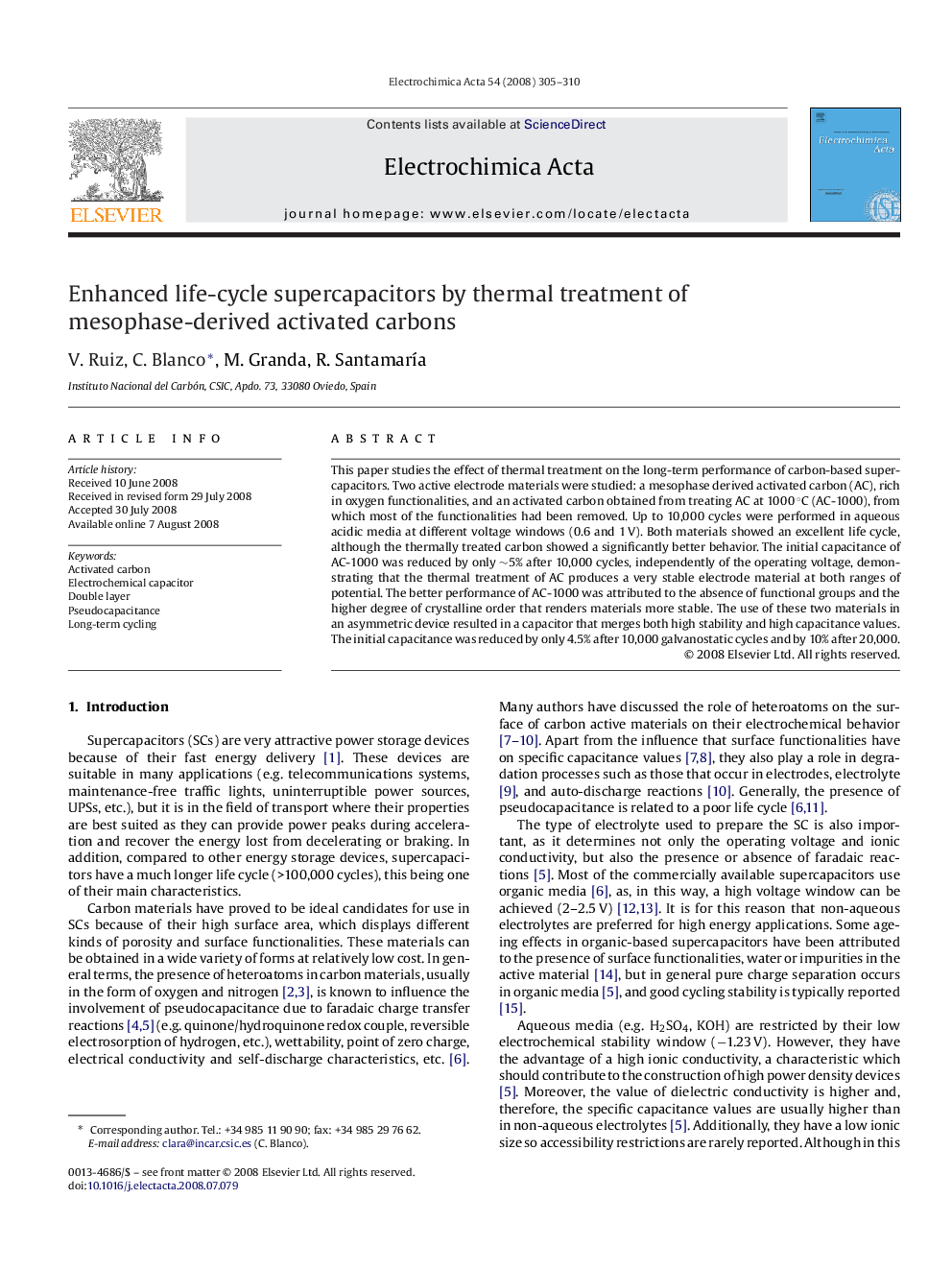| Article ID | Journal | Published Year | Pages | File Type |
|---|---|---|---|---|
| 194140 | Electrochimica Acta | 2008 | 6 Pages |
This paper studies the effect of thermal treatment on the long-term performance of carbon-based supercapacitors. Two active electrode materials were studied: a mesophase derived activated carbon (AC), rich in oxygen functionalities, and an activated carbon obtained from treating AC at 1000 °C (AC-1000), from which most of the functionalities had been removed. Up to 10,000 cycles were performed in aqueous acidic media at different voltage windows (0.6 and 1 V). Both materials showed an excellent life cycle, although the thermally treated carbon showed a significantly better behavior. The initial capacitance of AC-1000 was reduced by only ∼5% after 10,000 cycles, independently of the operating voltage, demonstrating that the thermal treatment of AC produces a very stable electrode material at both ranges of potential. The better performance of AC-1000 was attributed to the absence of functional groups and the higher degree of crystalline order that renders materials more stable. The use of these two materials in an asymmetric device resulted in a capacitor that merges both high stability and high capacitance values. The initial capacitance was reduced by only 4.5% after 10,000 galvanostatic cycles and by 10% after 20,000.
